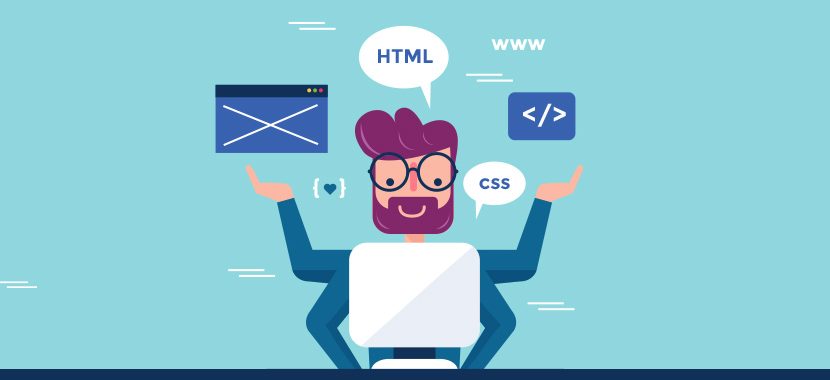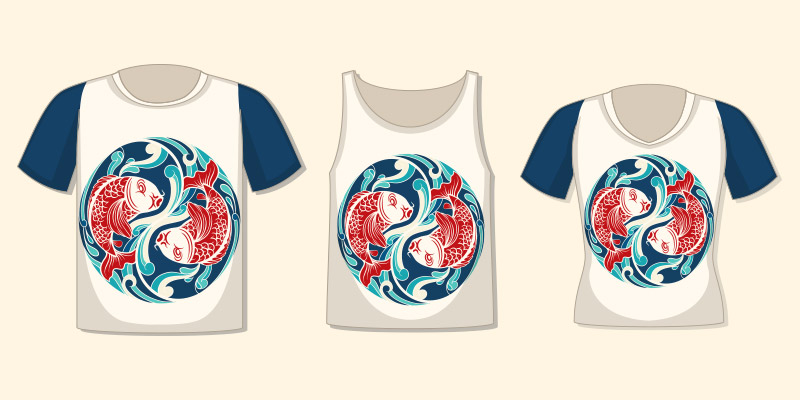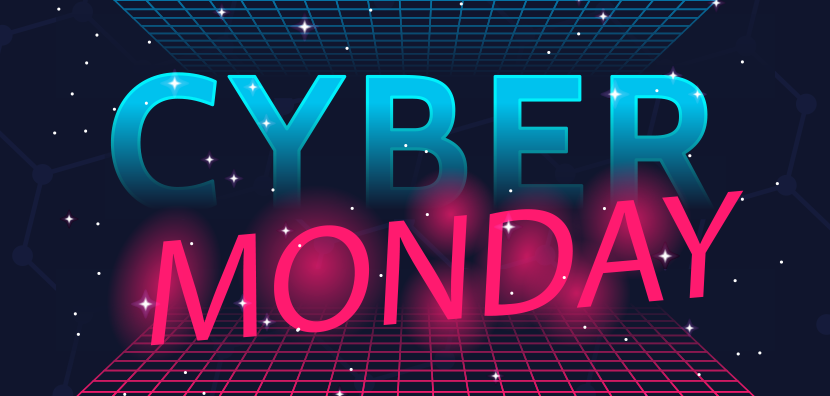To Code or Not to Code: Debunking the Myth

Featured Image: Freepik
A decade ago, if a designer were asked whether he/she knew how to code, they’d send you packing and refer you to the expert developer. Why should a designer code when it’s not their job? But time has changed, and when we floated a discussion on major designer groups, we’ve found that designers who don’t know how to code are facing the music. They now realize they need to have at least basic coding knowledge to be able to survive in the industry.
So the question to code or not to code is a myth which will be debunked in the following situations:
If You Are a Graphic Designer
If you are a graphic designer who doesn’t want to get his/her hands dirty with coding and everything it entails, it wouldn’t harm if you spend some time at least understanding the language even if you don’t formally learn it. One of the reasons why this is necessary is because there are times when you may be thinking of a design that is not logically possible because it cannot be transformed into executable code. To quote Joshua Uzzell, a creative entrepreneur and graphic designer:
“Being a design/dev unicorn would make a designer more valuable as they can offer a more complete package as well as charge more. But this comes with a huge learning curve, time commitment, patients, and you have to really like programming or you could end up miserable.
At the very least I think all designers should know HTML/CSS and what is possible for the type of project they are designing for whether its responsive sites, mobile apps, native apps, etc.
I think learning user experience is where designers are starting to learn towards instead of learning complex programming languages.”
Hence, understanding the coding will help you better explain your design concepts to a coder so that all the sliders and pixels you want are in the right place.
So even if you have decided to focus on designing and leaving the codes to the experts, it’s important that you know so much so that you know the dos and don’ts. Some of the languages that seasoned graphic designers in the field recommend to get your hands on are HTML, JavaScript and CSS.
Also know that front-end development and coding skills are especially recommend in freelance graphic design work because your client may want you to deliver an actual website as opposed to just a design.
If You Are a UI/UX Developer
Most UI/UX developers and designers yearn to learn and grow in their respective fields. And if you are a professional who wants to proceed further in this industry, you need to understand that not only are you expected to know HTML, CSS and JavaScript but should be skilled in web programming languages such as Java, .Net, AJAX, PHP, XHTML and Ruby. Coding is not a choice but a mandate. In fact, you should have knowledge of DBMS, CMS and SEO as well in order to conduct usability test to identify and fix problems to create intelligent and user-friendly websites. Today most UI/UX developers know a host of skills which are beside their core job description – people interaction patterns, verbal and written communication, aesthetics and graphic design dynamics which has nothing to do with coding but play an important role in effective design and development processes.
To quote User Experience Architect at Yahoo! Anna Chou who participated in the discussion:
“I feel strongly that all UI/UX/visual designers should be required to at least understand basic HTML/CSS and how design translates into code. Understanding code makes us better designers and also improves our communication with engineers who are, in the end, building and deploying our product to thousands of users. If we want our designs built accurately with little to no miscommunication, we need to be contributing in code as well. We must speak the same language if we want to do it right.”
Furthermore, if you invest time on this side of the door, you will be more sought-after because people know that a thoroughly educated and knowledgeable designer is a lot better than one who knows about development (or graphic) only.
If You Are a Project Manager
Even if you are not a designer but holds a managerial position to oversee design projects, you will need to know about coding and a little about designing because you are the middle man who will need to understand their needs, translate to the designers and developers, and will be responsible for sending out the final files to the client in the end. So if you want to be sure that the client receives quality work that hasn’t been compromised due to the designer and developer’s incompetence, you will at least need to know a little of the basic coding languages. Know enough of the different types of languages and where they can be best applied so much so that you would be able to determine who you need on board your panel of experts to achieve your objectives.
An ideal way to go about this is to read as much about the terms and concepts of coding so you know most of the things that happen in the process of website design and development.
If You Are a Client
If you are a client who is looking for an exceptional designer for your work, you may have been searching for one who knows it all. However, even though this will be convenient for you, it may not be the most financially sound and appropriate decision. The fact is that designers who are also good at coding will cost you a lot more than if you hire separate people for designing and coding. As Art Director Juan Cevantes says:
“I’ve always said “Understand enough about a medium and it’s possibilities so you can take full advantage of their limitations.”
I love learning but I mostly love and respect other peoples abilities to do their part. Coders need to be respected. Give them room to breath in their expertise and you’ll see what’s truly possible. I don’t try to limit them with my knowledge I try to adapt to theirs. And they’ve appreciated my ability too.”
These kinds of professionals won’t just be able to concentrate on their assigned tasks clearly but they will also know the intricate details about their respective fields that a designer-coder may not be aware of. So if you want the best of both worlds, it is recommended that you hire a designer who knows about coding a little and a coding specialist who is knowledgeable about designing.
Designing and coding may seem like two very different types of things but the fact is that they are interconnected in more than one way. No matter how good your design and art skills, you can never hope to attract as much attention as if you know how to create a good user experience which only comes with coding a good front-end interface. So depending on your client’s requirements, experience and skill, decide if you merely need to understand the main concepts relating to coding or if you should learn it professionally and spend time on it. When in doubt, experts suggest “learn it”.
Are you a designer? Do you know how to code? What do you recommend – should designers learn how to code? Share your views by commenting below.






Kind of a random tangent but i’ve joined Treehouse to learn code.
Starting with Python as it’s meant to be quite easy, then branching out into others in an attempt to “Future proof” my ability to earn money! 🙂
@calvin_da_great:disqus I think that’s a great move. Considering the discussion, if designers stay stuck in their own world, they will limit their scope. By learning, I think you are taking a step in the right direction. Why Python though?
🙁
I spent weeks asking around developers and peers as to which language is “Best” for future work – Worst question to ask ever.
Each person is an evangilist in their strongest language, as is the same with info on the internet.
So what I came away with after the initial confusion was that Python was an easy intro into the world of programming and understanding how this skill works – provides a good foundation in a language still being used in the working world.
Once you have a grip on that, you can then branch out into others – Or so i’m told.
@calvin_da_great:disqus that is disappointing indeed. I am told basic HTML first, then branch into CSS and more complex ones like PHP, Ruby, Java and C++ and so on.
I spent a long time learning the basics and hacking around with reasonable success, but I’m a designer, I want to push boundaries, create what I like not what something will allow. As I get older I see how knowledge can be the greatest inhibitor to creativity. To be told you cant do something by others is bad enough, but to work to limitation from the start is not good. I say we should design like there’s no rules and let the code catch up!